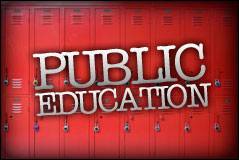Media
More Bad News for Minority Students in Philadelphia Public Schools
 How are African-American males faring in Philadelphia public schools? According to a report recently released by the Council of Great City Schools, not very well. The report, “A Call for Change: The Social and Educational Factors Contributing to the Outcomes of Black Males in Urban Schools”, which highlights the plight of African-American males in the nation’s largest urban school systems, found that fully 50 percent of 4th and 8th grade African-American males scored below the basic levels in reading and math on the 2009 National Assessment of Education Progress (NAEP) test.
How are African-American males faring in Philadelphia public schools? According to a report recently released by the Council of Great City Schools, not very well. The report, “A Call for Change: The Social and Educational Factors Contributing to the Outcomes of Black Males in Urban Schools”, which highlights the plight of African-American males in the nation’s largest urban school systems, found that fully 50 percent of 4th and 8th grade African-American males scored below the basic levels in reading and math on the 2009 National Assessment of Education Progress (NAEP) test.
NAEP test results were used in this report because it is consistently considered the national standard of being able to compare student achievement across state lines, and often provides a much different picture of student performance than dumbed-down state standardized tests.
How specifically did African-American Students in Philadelphia public schools perform?
The report found that 68 percent of 4th grade students scored below the basic level of achievement on the NAEP reading exam. Only six percent scored at or above the proficiency level. Likewise, 46 percent scored below the basic level of achievement on the 4th grade mathematics exam and only 10 percent scored at or above the proficiency level.
In addition, the report found that 58 percent of 8th grade students scored below the basic level of achievement on the NAEP reading exam and only six percent scored at or above proficiency. Likewise, 60 percent scored below the basic level of achievement on the 8th grade mathematics exam and only eight percent scored at or above proficiency level.
These results are discouraging for parents who want their children to achieve academic success once they enter high school, let alone prepare them for college and life.
This is just one more example of why families in Pennsylvania are clamoring for more educational options for their children. Charter schools and cyber charter schools are helping to provide more flexibility with in the public school system at a reduced cost to taxpayers. Programs like the innovative Educational Improvement Tax Credit (EITC) program are giving tens of thousands of students a chance to succeed in a private school of their choice thanks to the involvement of the business community.
Now is the time to take the next steps and allow educational dollars to follow students to whatever school they and their parents decide best fits their educational needs.